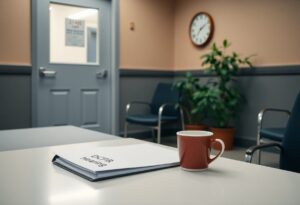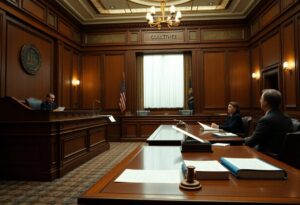How Can Families Effectively Challenge and Reverse DCF Neglect Allegations in Massachusetts?

Facing a neglect allegation by the Massachusetts Department of Children and Families (DCF) can be terrifying. Imagine Raya and Diego, caring parents in Massachusetts, accused of neglect after their child, Rafael, had a minor accident at home.
Rafael fell off the couch while playing, resulting in a bruise. Raya took Rafael to the emergency room, where the doctor filed a 51A report. DCF swooped in, alleging neglect, and threatened to take their child away. This scenario is all too real for many families who find themselves needing help with reversing DCF neglect allegations in Massachusetts.
When DCF knocks on your door, it feels like the world is crashing down. They question your parenting, inspect your home, and create a sense of fear and uncertainty. Many families, like Raya and Diego, feel lost and overwhelmed, unsure of how to defend themselves against these serious accusations.
Understanding the DCF process and knowing your rights is crucial. This article will guide you through the steps to challenge and reverse these damaging allegations. Keep reading to learn how to protect your family and navigate the complex world of DCF investigations.
What Is the Process for Reversing DCF Neglect Allegations in Massachusetts?
Challenging and reversing DCF neglect allegations involves understanding the investigation steps, and possible outcomes, and knowing how to appeal decisions if needed.
How Does the DCF Investigation Process Work?
When DCF gets a neglect report, they screen it by talking to the reporter and checking the family’s history. If the report meets their criteria, a 51B investigation begins, involving home visits and interviews. For example, in Raya and Diego’s case, multiple home visits and extensive questioning followed Rafael’s accident.
What Are the Possible Outcomes of a DCF Neglect Investigation?
There are three possible outcomes:
- Unsupported: No reasonable cause to believe the child was neglected, leading to the closure of the case.
- Substantiated Concern: Reasonable cause to believe the child was neglected, but there is no immediate danger to the child’s safety or well-being. The case may be monitored but does not result in severe consequences.
- Supported: Reasonable cause to believe the child was neglected, and actions or inactions by the parent or caregiver pose a substantial risk to the child’s safety or well-being. This outcome can lead to more serious interventions, including removing the child from the home.
How Can Families Appeal a DCF Neglect Decision?
Families can appeal supported/substantiated claims by filing a request for a Fair Hearing within 30 days. During the hearing, they can present evidence, call witnesses, and explain their side. Preparation is key, and having an experienced lawyer can help.
What Evidence Can Help in Reversing DCF Neglect Allegations?

Gathering strong evidence is vital in defending against DCF neglect allegations. This evidence can demonstrate that the allegations are unfounded and help to build a robust case.
Why Are Medical Records Important?
Medical records from doctors and hospitals can be powerful evidence. They provide an objective account of the child’s health and any medical treatments received. Consistent records showing that the child is healthy and well cared for can counter DCF’s claims of neglect.
How Can Witness Statements Support Your Case?
Statements from reliable witnesses, such as teachers, neighbors, and family members, can support the family’s side of the story. These individuals can attest to the parents’ character, the child’s well-being, and any relevant incidents or observations.
What Role Do Expert Testimonies Play?
Expert testimonies, particularly from child psychologists and medical professionals, can significantly influence the case. Experts can provide professional opinions on the child’s condition, the plausibility of the neglect allegations, and the appropriateness of the parent’s actions.
How Can Legal Representation Aid in Reversing DCF Allegations?

Getting a good lawyer is key in cases involving DCF Neglect allegations. A skilled lawyer helps families understand the complex legal process and defends against false claims. Legal representation can make a significant difference in challenging and reversing DCF neglect allegations in Massachusetts.
What Should You Look for in a DCF Defense Lawyer?
Key qualities to look for in a DCF defense lawyer:
- Experience: Extensive experience in family law and DCF Neglect cases.
- Knowledge: Familiarity with Massachusetts child welfare laws and regulations.
- Track Record: Proven success in defending parents against neglect allegations.
- Compassion: Understanding of the emotional strain on families and clear communication.
A good lawyer will keep you informed and explain complex legal terms in simple language, ensuring you understand every step of the process.
How Can a Lawyer Help Navigate DCF Procedures?
A skilled lawyer guides you through each DCF process step:
- Initial Screening and 51B Investigation: Helps you understand these critical stages and the necessary actions.
- Evidence Collection: Gathers detailed medical records and expert testimonies.
- Interaction Guidance: Coaches families on interacting with DCF investigators.
- Fair Hearing Preparation: Prepares and represents families, ensuring a persuasive presentation of their case.
In Massachusetts, many families face DCF Neglect allegations annually. An experienced lawyer increases the chances of a favorable outcome by ensuring the family’s rights are upheld. By navigating DCF procedures effectively, a lawyer can significantly impact the resolution of the case.
What Are Common Missteps by DCF in Neglect Investigations?
Understanding common mistakes made by DCF can help strengthen your case. These errors can weaken DCF’s claims and support your defense against neglect allegations.
How Can Miscommunication Affect DCF Investigations?
Miscommunication between DCF and families often leads to wrongful allegations. For instance, misunderstandings about the family’s situation or the child’s needs can cause serious errors. It’s crucial to keep detailed records of all conversations with DCF. Note dates, times, and what was discussed. Correct any mistakes quickly to prevent misunderstandings from escalating.
What Are the Consequences of Incomplete Investigations?
Rushed or incomplete investigations can result in false conclusions. When DCF fails to gather all relevant information, they may make decisions based on incorrect data.
In Raya and Diego’s case, DCF did not fully investigate Rafael’s injury, leading to an unfounded neglect claim. Ensure all facts and evidence are considered and challenge any DCF findings based on incomplete investigations.
How Can Families Proactively Protect Themselves Against DCF Allegations?
Taking proactive steps can help protect your family from potential DCF allegations. Being prepared and informed is key.
Why Is Keeping Detailed Records Crucial?
Maintaining detailed records of all interactions with DCF is vital. Documenting dates, times, and the content of conversations can provide a clear account of events. These records can help prove your side of the story if allegations arise.
How Can Regular Medical Check-Ups Help?
Regular medical check-ups and keeping health records show that your child is well cared for. These records can counter claims of neglect.
In Massachusetts, ensuring that children receive regular medical attention can be a strong defense against neglect allegations.
What Role Does a Strong Support Network Play?
A reliable support network of friends, family, and professionals can be crucial. They can provide emotional support and back up your story if needed. Witness statements from neighbors or teachers can attest to your parenting skills and the child’s well-being.
Key Takeaway
Reversing DCF neglect allegations in Massachusetts requires understanding the investigation process, gathering strong evidence, and having experienced legal counsel. Families should maintain detailed records and regular medical check-ups to protect against wrongful claims. By knowing DCF’s common mistakes and being prepared, they can effectively challenge and reverse false allegations.
Families must stay informed about their rights and DCF procedures. A skilled Massachusetts DCF defense lawyer can significantly improve the chances of a positive outcome. With the right approach and support, families can ensure their children’s safety and well-being.
Defend Your Family: Book a Consultation with Kevin Seaver Today!
Reversing DCF neglect allegations in Massachusetts is crucial to protect your family and your rights. At the Law Office of Kevin Seaver, we specialize in DCF investigations, assessments, and fair hearings. If you are facing these allegations, don’t navigate this alone. Our legal team can provide the support and representation you need.
Contact us today to book a consultation and take the first step in defending your family. Call the Law Office of Kevin Seaver at (617) 263-2633. Let us help you ensure the safety and well-being of your children.
[title style=”center” text=”Disclaimer”]
You find yourself in this situation, it’s advisable to seek legal representation from a qualified attorney, like those at the Law Office of Kevin Seaver, who can advocate for your rights and guide you through the complex process of a DCF investigation.
Remember that the ultimate goal of DCF is to ensure the safety and well-being of children while supporting families in crisis.
Please note that this article does not create an Attorney-Client relationship between our law firm and the reader and is provided for informational purposes only. Information in this article does not apply to all readers.
Readers should not rely on this information as legal advice and should seek specific counsel from the attorney based on personal circumstances. Thank you.
Kevin Patrick Seaver is a Massachusetts DCF Defense Lawyer who represents parents against false child abuse allegations.





